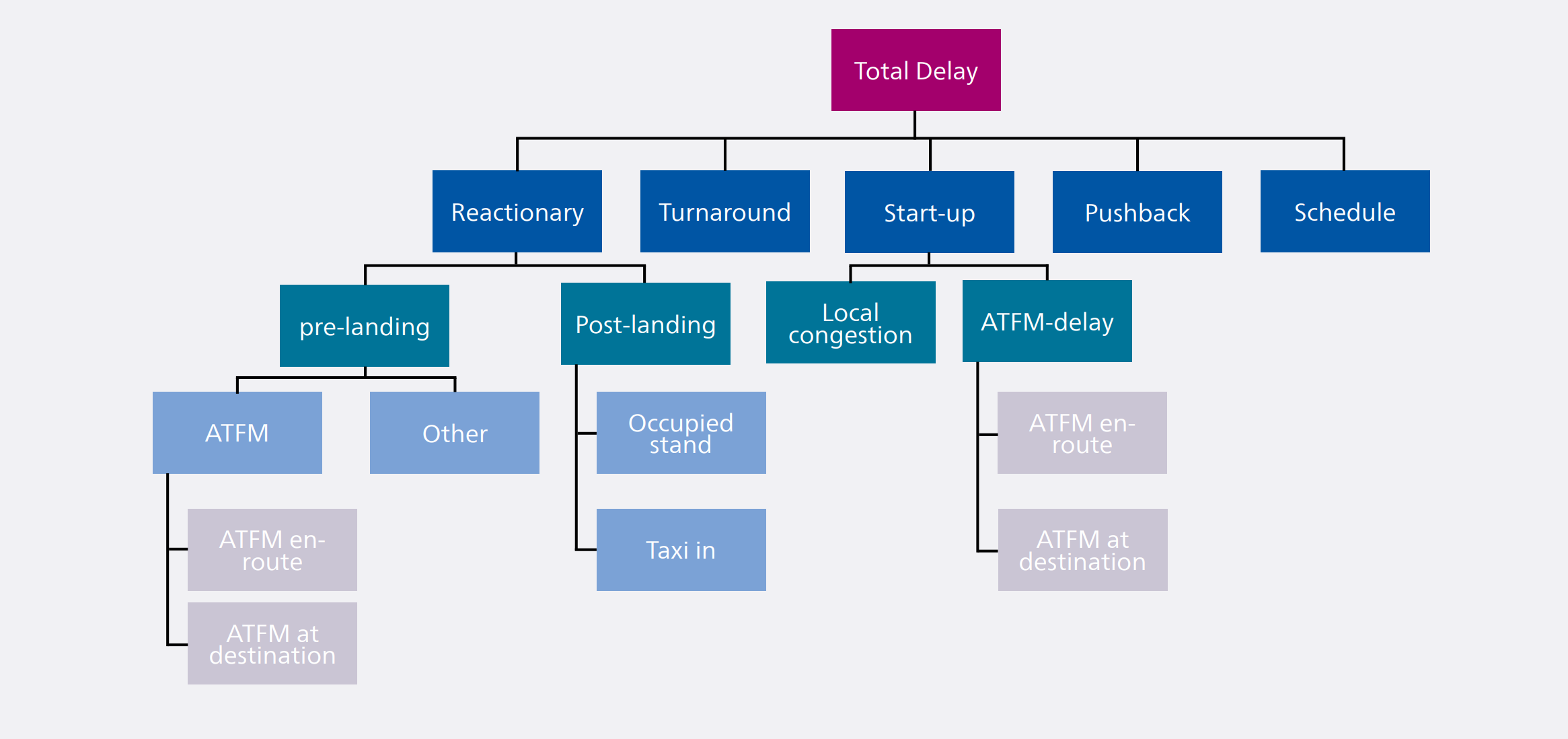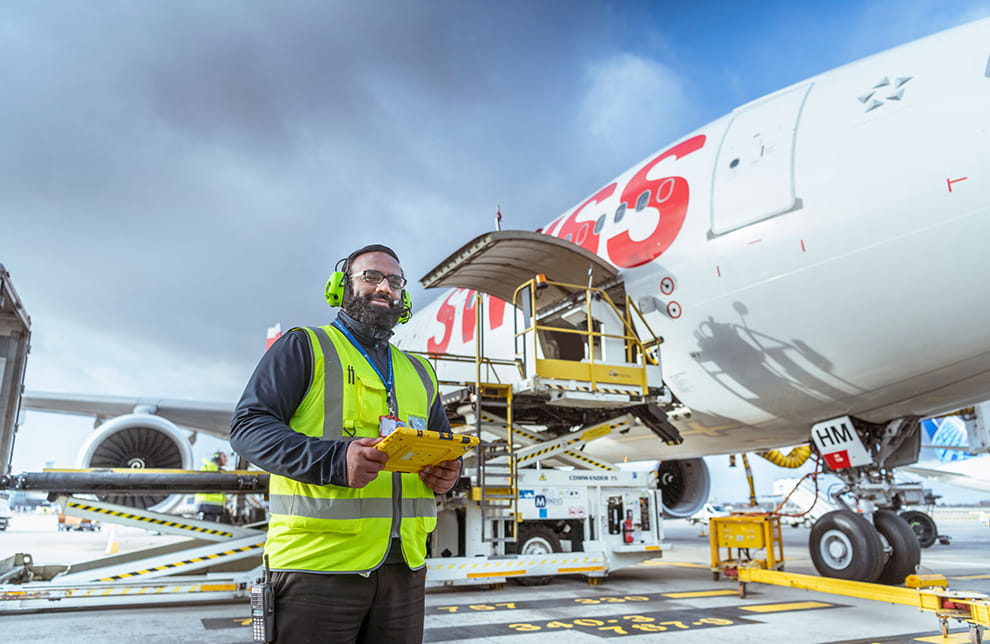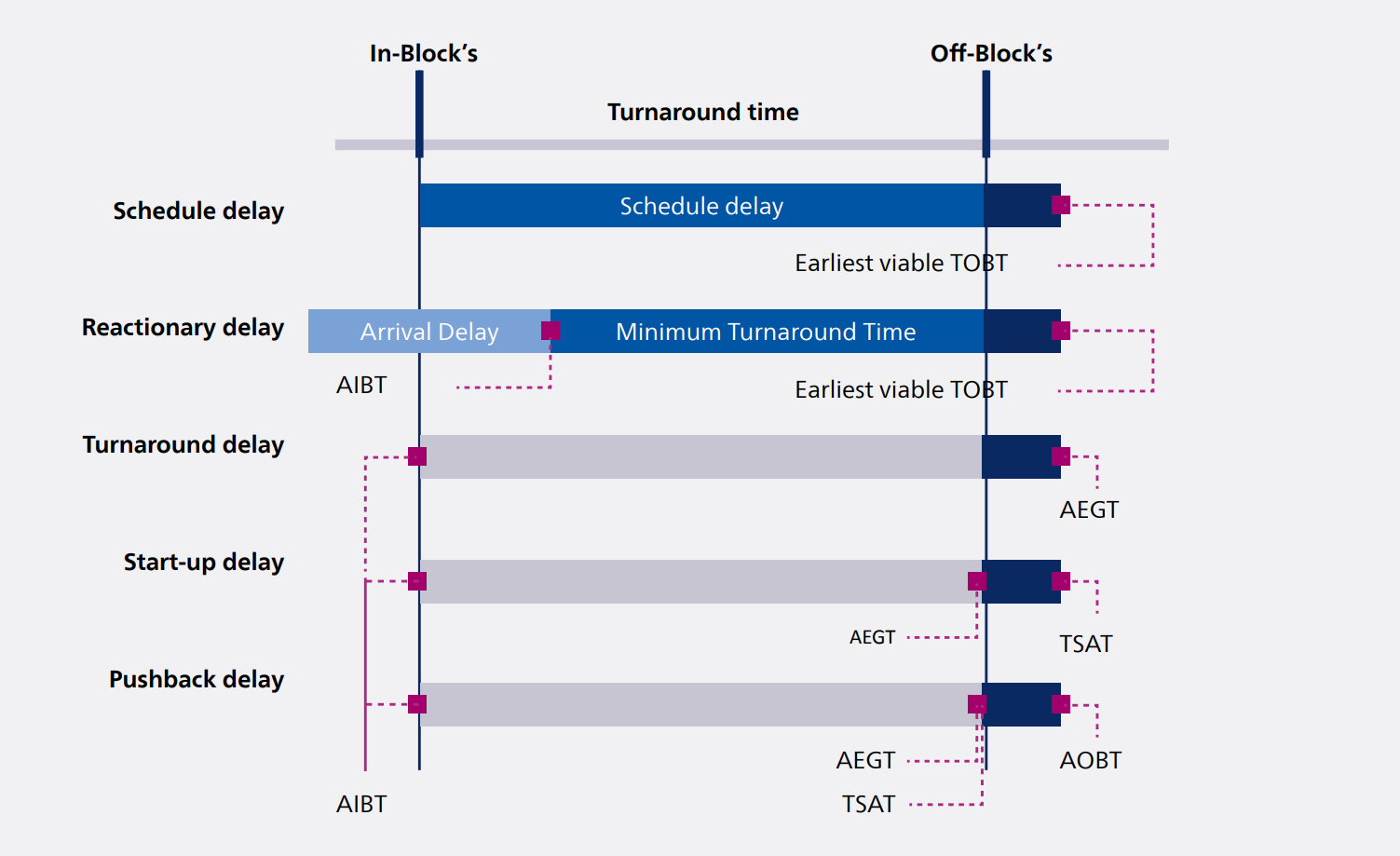The Amsterdam Delay Allocation Method explained
On-Time Performance (OTP) defines the heartbeat of aviation operations and enables the industry to operate the schedule as promised to the customer. Having a deep understanding of the cause of delays is crucial for improving OTP.
And that’s what Jeffrey Schäfer, Process Owner Aircraft Turnaround at Amsterdam Airport Schiphol is after. Together with his colleagues, he developed a solution to provide end-to-end insight into flight delays through algorithms called the Amsterdam Delay Allocation Method (ADAM).
The method provides a breakdown of all reasons for delay and has been the key method for delay analysis at Schiphol since 2019. ADAM is a deterministic algorithm that calculates delay in five categories, further distinguished as schedule, reactionary, turnaround, start-up, and pushback delays.
In short
- Improve delay insights using data already available
- Enable improved decision making through factual delay data
- Create future-proof methods for delay analysis
- Download the white paper (below)
Problem: Delay codes are often based on subjective perspectives
When analysing the cause of delays, airports heavily rely on IATA delay codes as reported by the airline and/or ground handlers. These codes are often based on subjective perspectives and may be formulated with limited available information due to the operational intensity.
There is a large amount of data available for airports in their Airport Operations Database (AODB), especially when operating with Collaborative Decision Making (A-CDM) processes. Airports can seize the data and let it speak for itself.

Solution: Using a breakdown of all reasons for departure delays
Amsterdam Airport Schiphol has developed a solution to provide end-to-end insight into flight delays through algorithms.
This method is called the Amsterdam Delay Allocation Method (ADAM).
The method provides a breakdown of all reasons for departure delay and has been the key method for delay analysis at Schiphol since 2019. ADAM is a deterministic algorithm that calculates delay origins in five categories, further distinguished as schedule, reactionary, turnaround, start-up, and pushback delays.
Result: Multiple delay reasons per flight, with a lot of detailed insights to see the full dynamic backed by data.
ADAM ensures that the delay build-up of a single flight can be explained by five reasons. Below the five reasons, there are further differentiators, instead of the regular two to three reasons from delay codes, based on factual data from the AODB.
The increased use and better accessibility of emerging technologies such as Artificial Intelligence and algorithms aren’t fully exploited in OTP analysis worldwide.
Schiphol is expanding the existing ADAM model by using the Deep Turnaround solution, enhancing the depth of the insights it offers.
Deep Turnaround can also assist decision makers to adopt the new IATA delay code scheme (AHM732) with a delay code advisor based on ADAM.
ADAM provides the opportunity to analyse multiple delay reasons per flight with great detail. This helps decision makers to understand delay more thorough than when using delay codes.
Airports and airlines are encouraged to download the white paper (below). Readers can contact the author of the white paper, Jeffrey Schäfer, Process Owner Turnaround as Amsterdam Airport Schiphol on LinkedIn. Airports interested in using Deep Turnaround can request a demonstration on the website.
Subscribe to Aviation Solutions updates:
Discover what we're up to and receive a quarterly digest of everything related to Aviation Solutions.
Read the previous blogs
-
Menzies’ 365 days with Deep Turnaround
Published on:Menzies Aviation shares their insights on how they transformed airport efficiency and communication with Schiphol's Deep Turnaround system over the past year.

-
Deep Turnaround featured on Future Airport
Published on:Future Airport's feature highlights Schiphol and Eindhoven Airport for their adoption of Deep Turnaround tech, revolutionizing airport operations.

-
Schiphol’s all new PRM call points
Published on:Explore Schiphol’s updated PRM call point, enhancing accessibility beyond regulations while improving experiences for PRM passengers.

